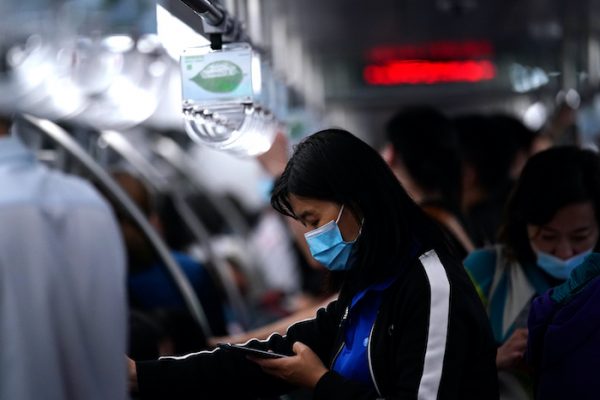China’s selective censorship is a mixed result of the government’s expansive yet vaguely defined internet regulations and the profit-motivated companies’ dilemma between retaining users with attractive content and purging their platforms of anything that might cross invisible Chinese Communist Party (CCP) lines. Corporate content moderation practices are in place primarily to protect the political interests of the CCP, while driving up their own revenue. Alternative narratives and critical analyses that challenge government authorities are the primary targets of oppression on social media platforms, leaving a vacuum for a highly singular set of conservative and often extreme ideologies to flourish.
The Citizen Lab found that rather than controlling misinformation, leading Chinese social media platforms primarily controlled content deemed critical and destabilising to the government, sometimes even removing neutral references to the coronavirus. YY, a popular Chinese live-streaming platform, began removing references to the disease on 31 December 2019, a day after Dr Li Wenliang tried to warn the public about the virus. WeChat silently censored references to Dr Li and general information about COVID-19 in chats, including transmission information. Meanwhile, commentaries characterising Li’s mourners — who advocated for freedom of speech — as ‘anti-China forces’ were allowed on the platform.
The broad scope of censorship in reaction to the COVID-19 outbreak is partly due to the ‘self-discipline’ system under which China’s social media censorship operates. The burden of censorship is placed on private companies who are held liable for content on their platforms. Failure to remove sensitive content in time can result in fines, temporary suspension of platform operations or revocation of business licenses. To comply with content regulations, companies often self-censor to avoid official reprimands.
This ‘self-discipline’ system has created a black box in China. In it, government actors and private companies negotiate content moderation outcomes clandestinely and the decision process is not subject to any public scrutiny or oversight.
In response to COVID-19 misinformation, Chinese internet regulators launched a series of campaigns to rein in falsehood and ‘profit-driven malicious content’. Companies have vowed to invest in human resources and technologies to remove misinformation. While regulators boasted that over 18,000 malicious accounts on popular social media platforms were suspended, no detail was given on what these accounts were or which regulations they violated. Meanwhile, misleading content that does not challenge party lines continues to circulate on Chinese platforms, even though these platforms have removed other content swiftly —as quickly as five minutes after a post is published.
When China was gripped by COVID-19 in January 2020, Chinese state media started reporting Influenza B in the United States. They emphasised the United States’ lack of proper response to the outbreak. Online discussions on Chinese platforms largely speculated that the coronavirus might have originated from the United States, where COVID-19 patients could have been mistaken for regular influenza patients dating back to October 2019.
Another widely circulated conspiracy theory on Chinese social media claims that the US military had brought the coronavirus to Wuhan during the 2019 Military World Games. The first page result of a keyword search for ‘US Military World Games’ on Sogou’s WeChat Search, Weibo Search and Jinri Toutiao all display articles attributing the coronavirus outbreak to the event. Medical experts at Wuhan Jinyintan Hospital have publicly debunked this theory but misinformation continues to circulate openly on the Chinese internet.
Nationalistic content sometimes takes on more personal targets. Beijing made attempts to restore its friendship with African countries through official avenues, but bottom-up racism and xenophobia thrived on the country’s heavily censored online platforms. On Weibo, some have labelled Africans as drug dealers, HIV/AIDS carriers and illegal immigrants. Others bluntly used racial slurs. In reaction to criticism, Weibo suspended 180 accounts for ‘inciting racism’. The full list of suspended accounts is not publicised, and many posts and comments containing racist sentiments remain accessible.
Rather than creating an efficient information curation model, regulator and company wars against ‘rumours’ and ‘harmful content’ have allowed misinformation and extreme content to thrive on the Chinese internet.
Globally, COVID-19 has brought about a broader trend toward more aggressive content moderation on social media platforms. The case of China is a reminder that content moderation should be done carefully with transparency and accountability. It also cautions against relying solely on technological solutions to internet ills.
The prevalence of sensational content on the Chinese internet that misleads, harms and discriminates is a product of the regulatory and ideological directives forced on platforms and the profit-oriented nature of the private sector. China must recognize the negative consequences the arbitrary censorship apparatus has brought upon its internet environment. In the words of Dr Li Wenliang, ‘A healthy society should not have just one voice’.
Lotus Ruan is a researcher at the Citizen Lab, Munk School of Global Affairs and Public Policy, University of Toronto.
This article is part of an EAF special feature series on the novel coronavirus crisis and its impact.

